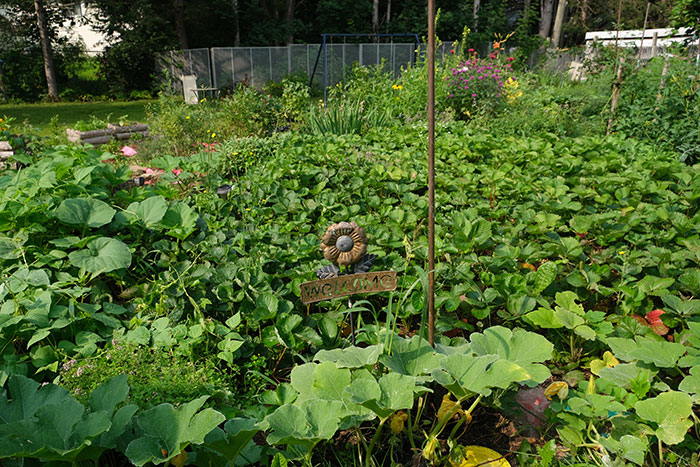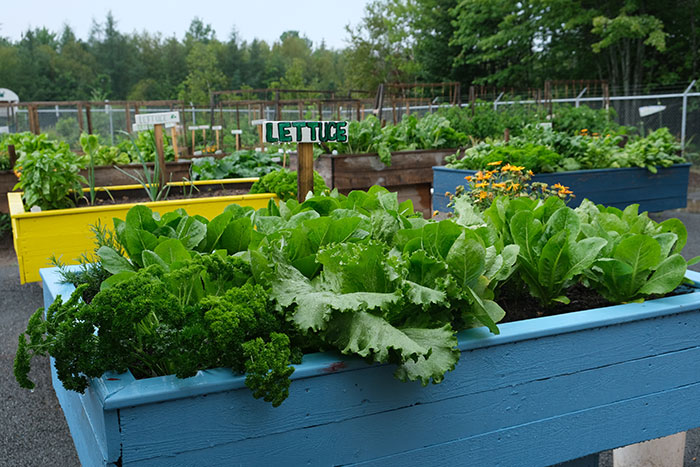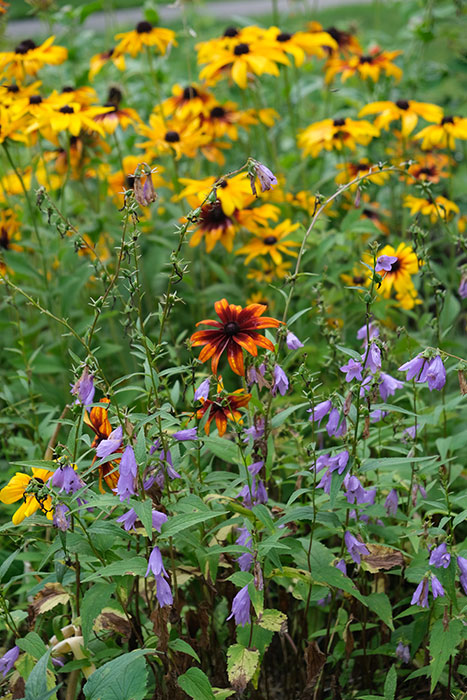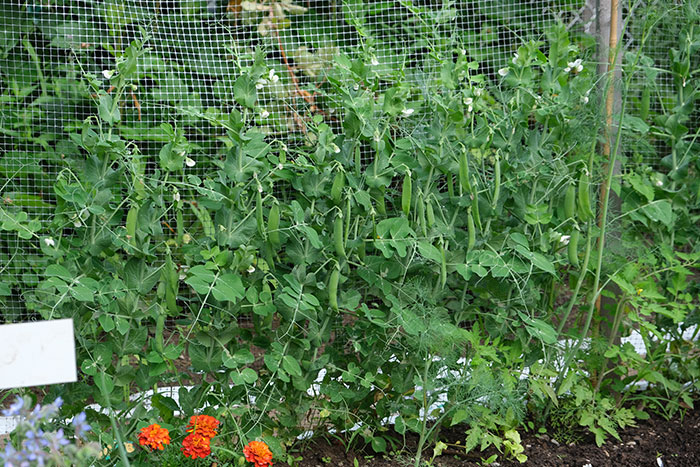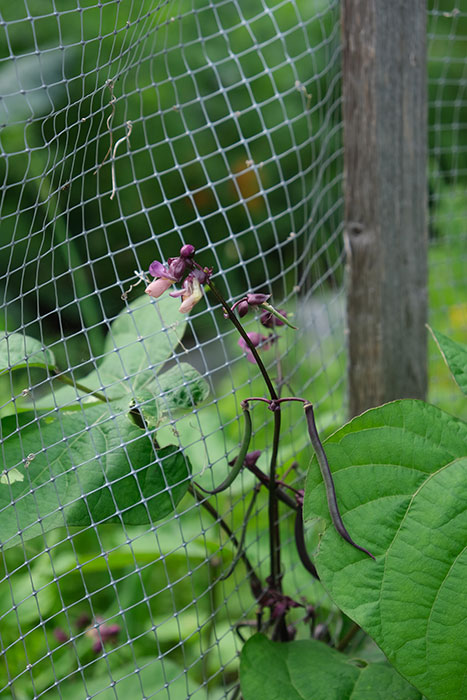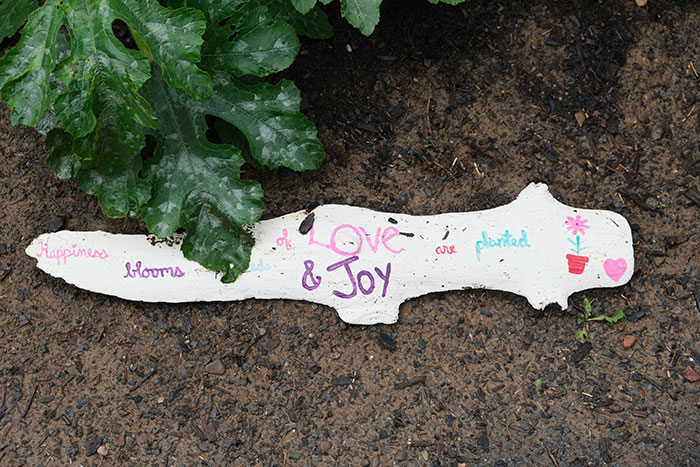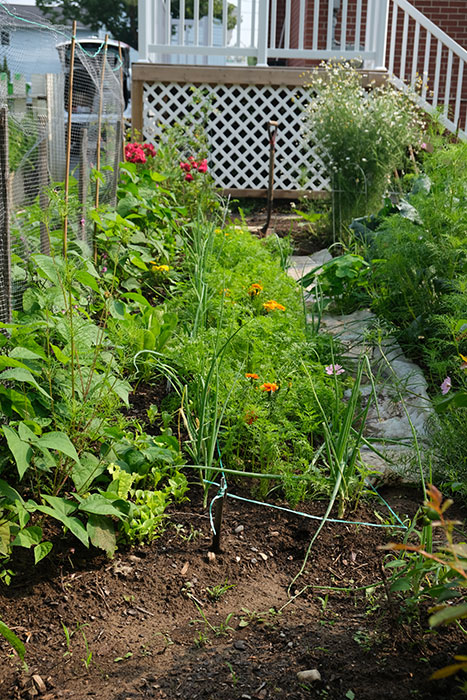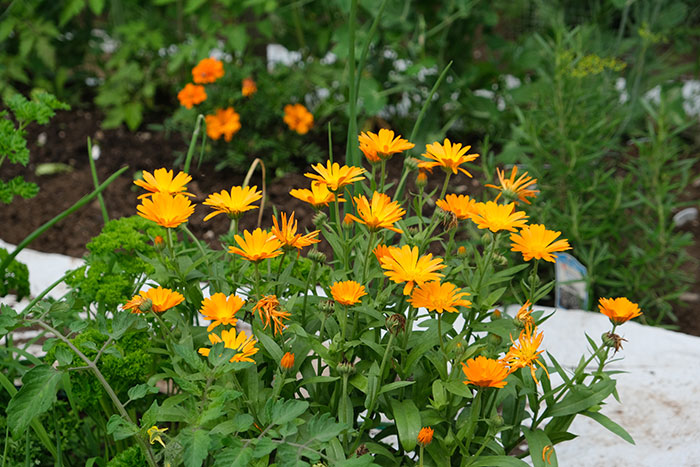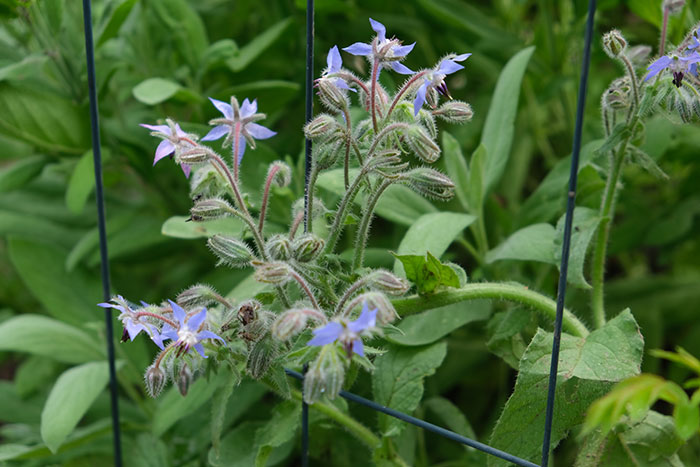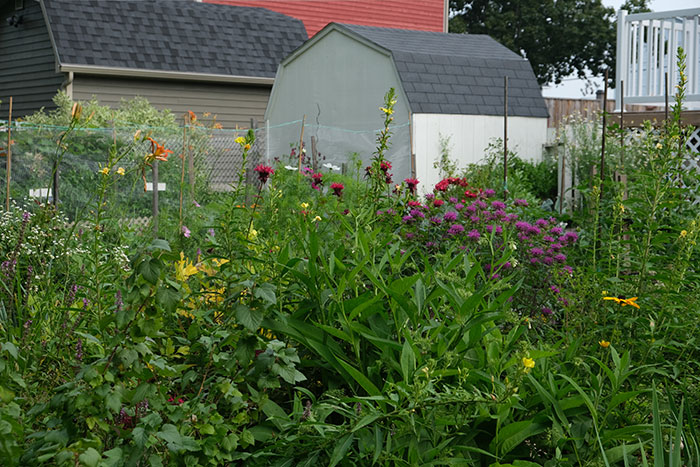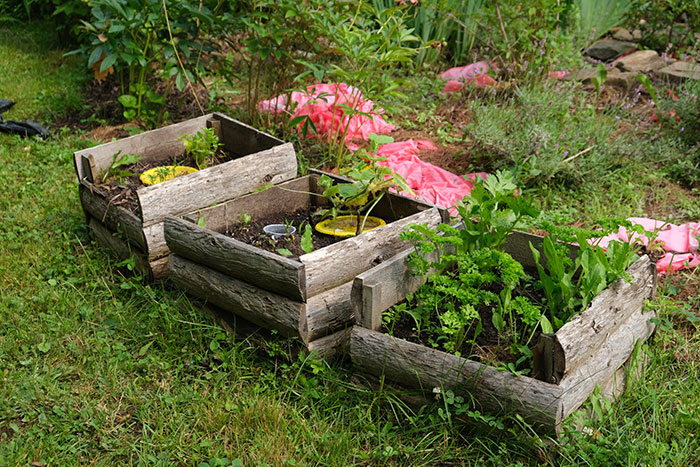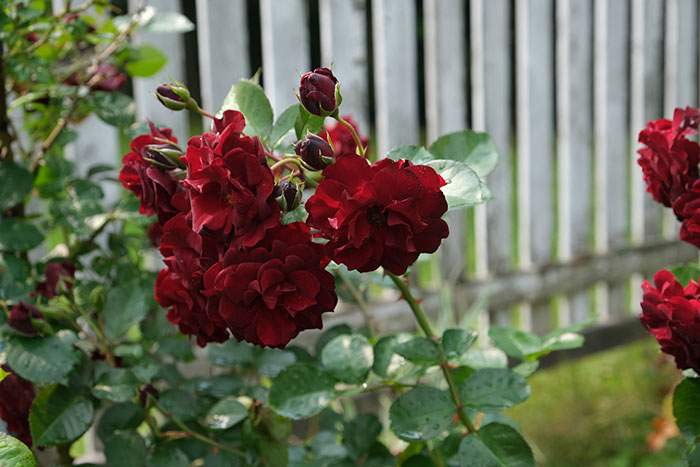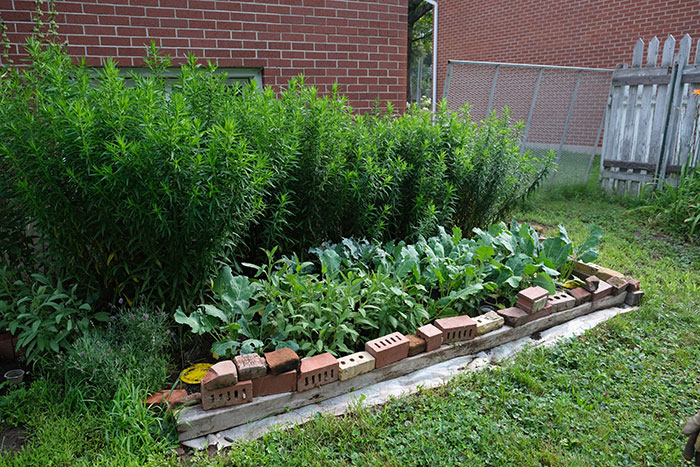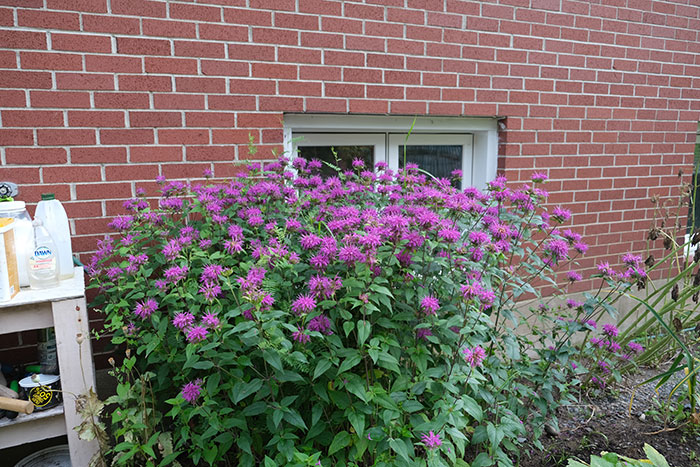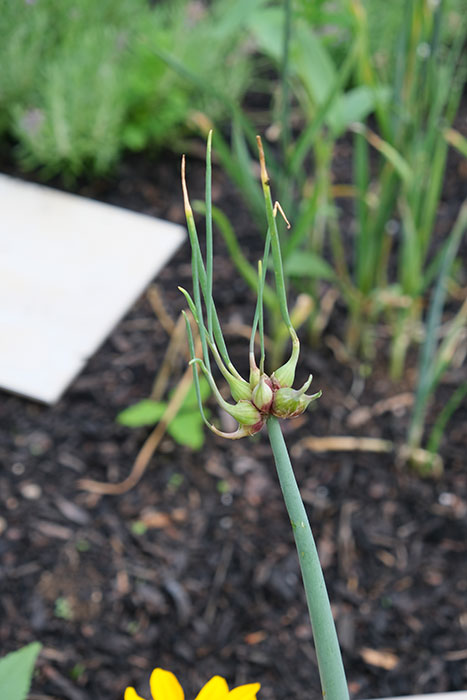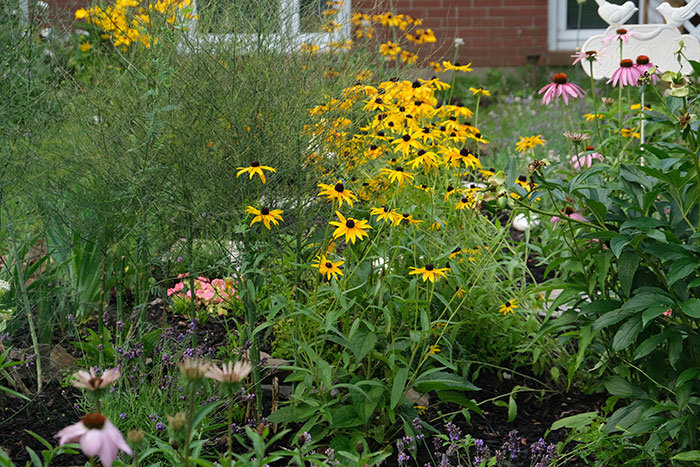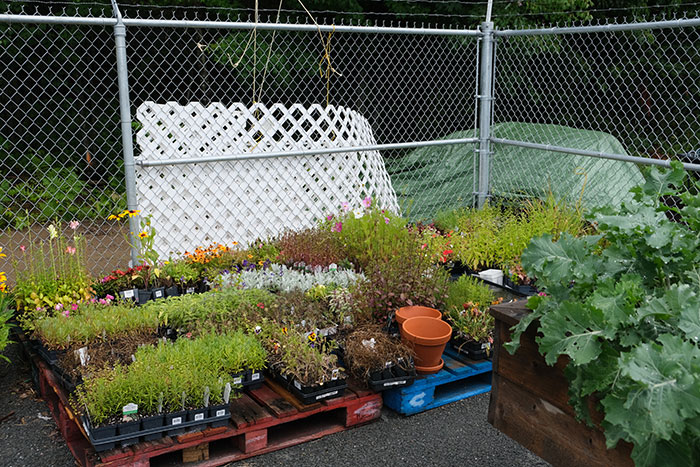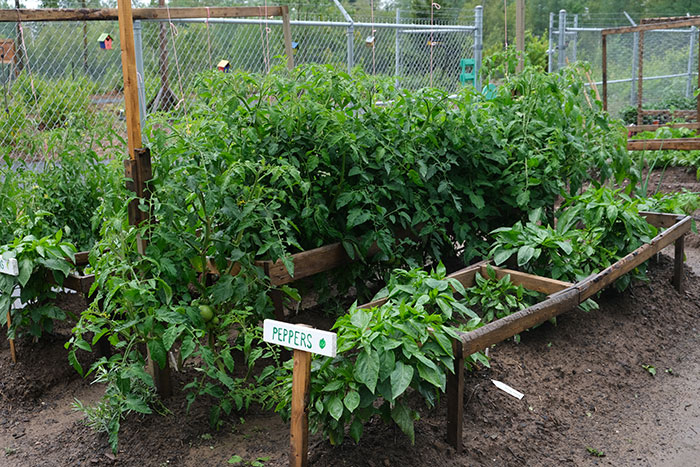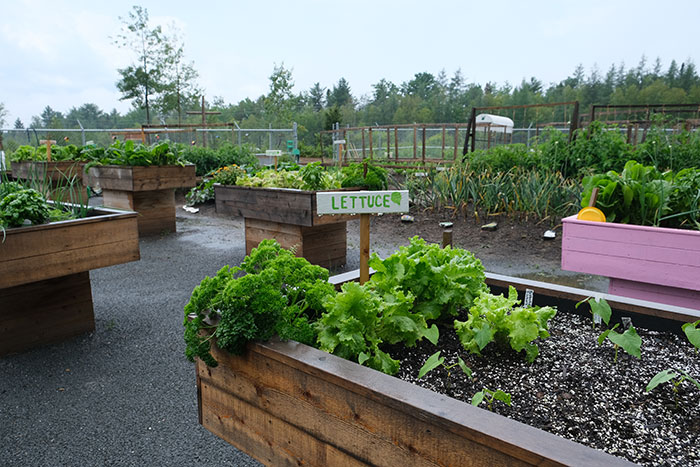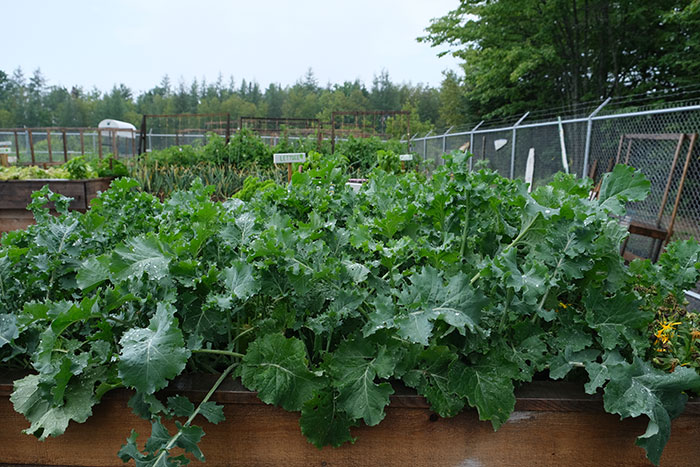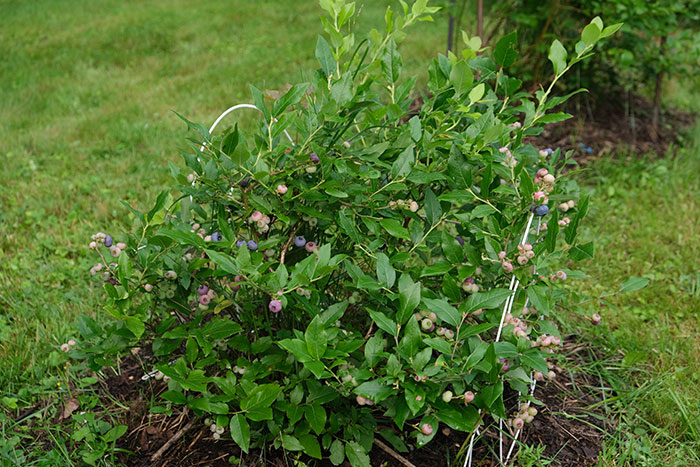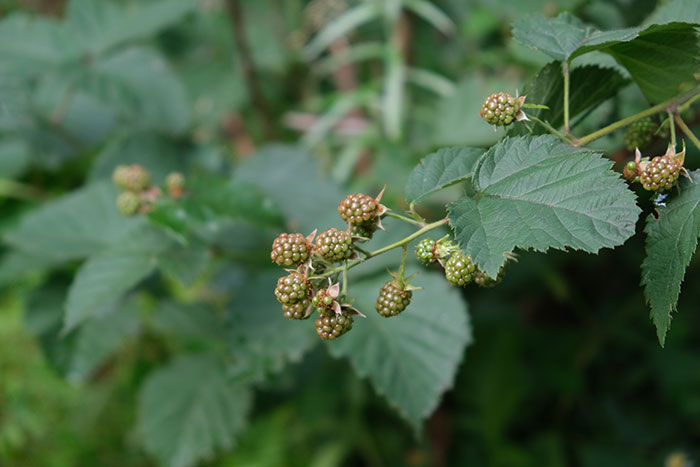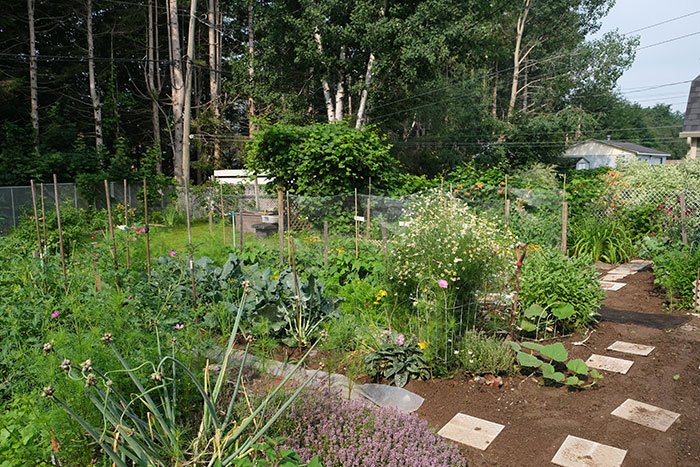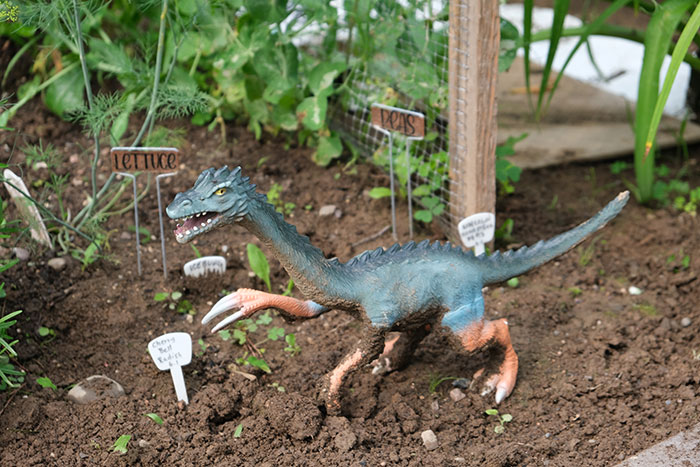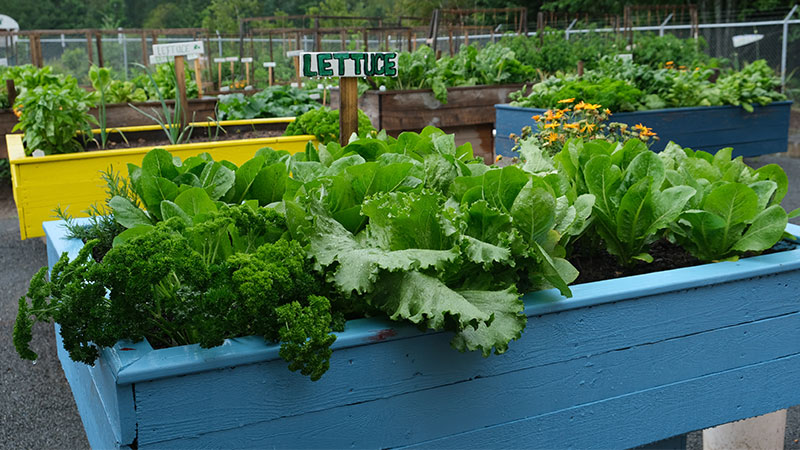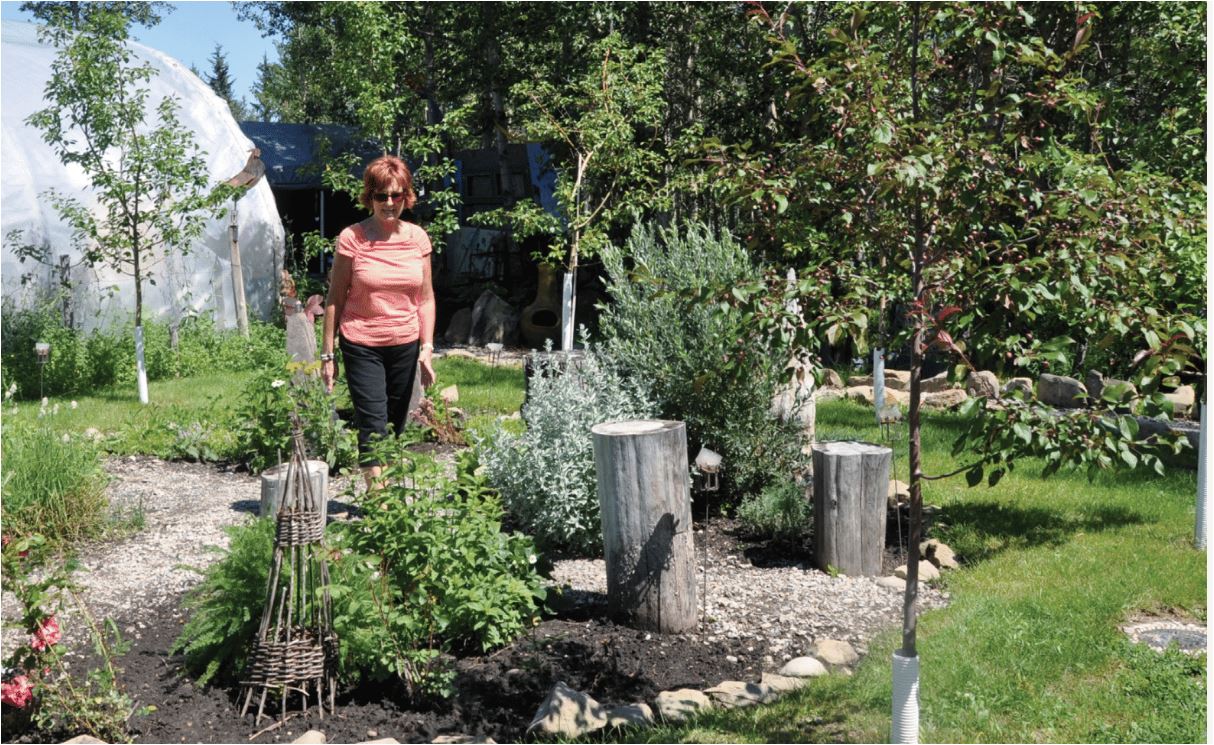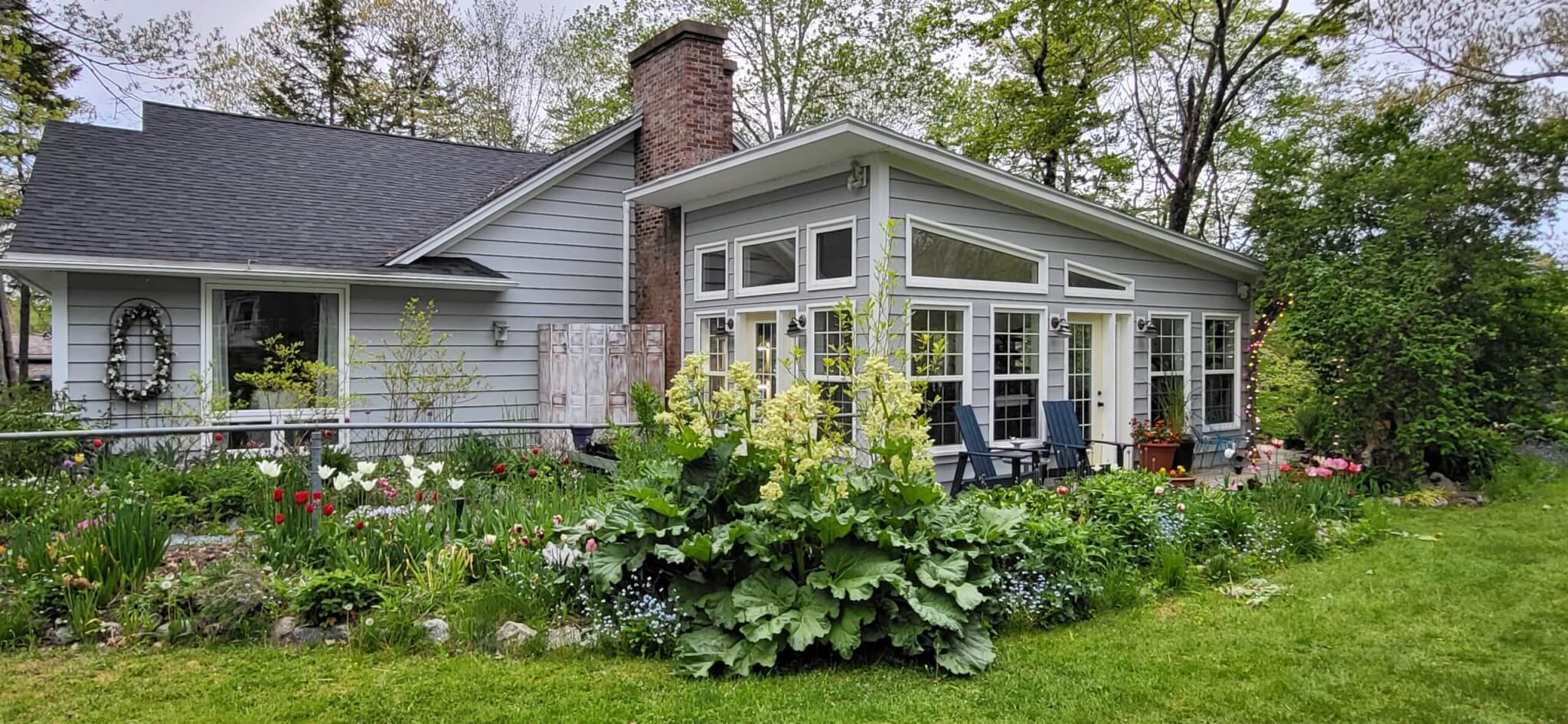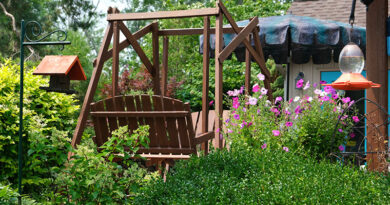Garden of Corinne Hersey
Story and photos by Shauna Dobbie
Everybody gardens for their own reasons, and for Corinne, those reasons are for food and safe pollinator habitat. As a professor of Sociology at St. Thomas University in Fredericton, she says, “No matter what I teach, I try to teach food advocacy and sovereignty.” Use of food banks and the community kitchen has more than doubled in number during the past year, only making her more determined to grow more food in the community.
She has been very concerned about the large number of clear-cuts in New Brunswick. “The forests are declining so fast here wiping out pollinator and wildlife habitat. We have been importing bees for the blueberries, and I thought, ‘this is just stupid’.” Wild blueberries have been growing in New Brunswick for centuries longer than they’ve been tended by commercial growers, and they never needed help with pollination in the past. That has certainly changed.
About six years ago, she turned to cultivating her own urban back yard, which she estimates to be roughly 20 by 40 feet. Though she began by turning sod, she quickly realised that that was just too much work and instead laid down cardboard and had topsoil trucked in. Then, she started to plant.
“I always make sure that flowers are in first, so that lots of pollinators come early,” she explains. Bergamot, bleeding heart, comfrey, calendula, sweet pea, and rudbeckia punctuate the garden with beauty while doing their job. Legs heavy with pollen, bees move from tomatoes to squash to marigold, while hummingbirds sip on morning glory and four o’clock. With the help of those pollinators, there is no lack of vegetables to save for seed – which she considers one of the most important acts of growing food. “Seeds are just one example of the planet’s abundance and should not be monopolized.”
Corinne’s back, front, and side yards grow vegetables, grapes, currents, raspberries, blackberries, huckleberry, blueberries, flowers and herbs. There is a large and widening crop of strawberries, perhaps to delight the couple of young grandsons who play with the dinosaurs that are hidden in a forest of tall vegetables where Corinne places them for the boys to find.
What does she do with all of her produce? She gives some of it away to people in the neighbourhood. When she sees local kids passing the house, she’ll invite them into the front yard to eat some raspberries and tell them to take what they want, whether she’s there or not. Of course, she eats plenty of her produce fresh herself, and preserves a lot of it through drying, pickling, freezing and canning.
This interest in growing food does not end at her property line. She teaches it and facilitates it in her area. Through Corinne’s business, Natural Capital Gardens, she designs and installs gardens for businesses and non-profits, often helping them secure funding. “Gardens must be sustainable and fit the needs of the person. They should heal hunger, habitat, and heart.” she claims. A great success story is her work with the Salvation Army Community Centre, where she works with seniors to grow food.
She also forages for wild edibles and medicine, such as lamb’s quarter, stinging nettle, fiddleheads, and plantain. She enjoys mushroom hunting with experts and harvests chaga, a fungus that grows on birch trees (see the link) and is prized for medicinal benefits.
With rising prices and the threat to the food system more pronounced due to the pandemic, Corinne sees her concerns over food sovereignty being echoed by many more people. “Growing and preserving your own food is now becoming necessary.” One who has volunteered at the Salvation Army (SA) garden will be planting her own this year to take some pressure off of her grocery bill. She got her seeds started at the SA’s first workshop and while it is a little sad to lose a volunteer, “this is why we do what we do”, says Corinne. Not a gardener in the past, she will now have access to her own food which would be far more than she could purchase – or share.
In the woods, in the community, and in our own back yards, there are food possibilities for us to find, to cultivate and to use. Whether you’d like to forage or garden, someone like Corinne is needed to offer encouragement and show how it’s done.
